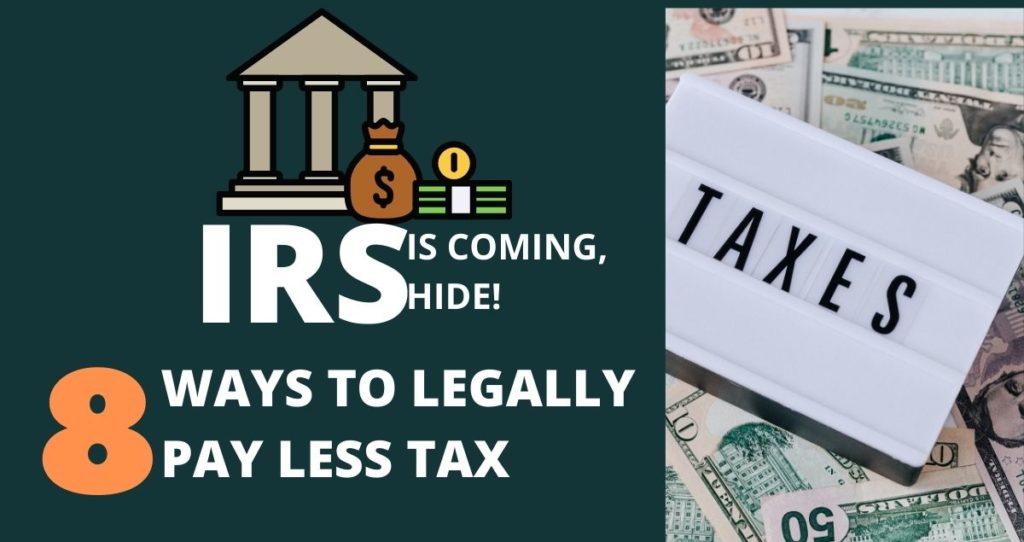Are you tired of the unpredictability of the stock market and searching for a reliable investment option? Look no further than certificates of deposit (CDs). Despite their reputation for being old-fashioned, CDs offer surprising benefits for investors in today’s market. In this article, we will explore what makes a CD a good investment and why you should include a CD in your portfolio.
What is a CD?
A certificate of deposit or CD for short is a time deposit account offered by banks, credit unions, and other financial institutions. Each certificate of deposit account comes with a fixed interest rate and you cannot withdraw your money until your CD matures. Early CD withdrawals usually come with a hefty penalty that is either a number of months of interest on the CD or a flat fee.
In exchange for keeping your money locked in a CD, you get to enjoy annual percentage yields(APYs) that are higher than what you get from traditional deposit accounts such as savings accounts and money market accounts(MMAs). Certificate of deposit terms usually range from a couple of months to five years or more. The FDIC insures CDs from banks while the NCUA insures CDs from credit unions up to $250,000.
There are different types of CDs but common ones include Traditional CDs, IRA CDs, High-Yield CDs, Jumbo CDs, Bumb-Up CDs, Step-UP CDs, Special CDs, Brokerage CDs, Zero-coupon CDs, Callable CDs, Addon-on CDs, no-penalty CDs.
To learn about each type of CD, use the following guide: 11 Types of CDs: Which certificate of deposit is right for you?
Why is a CD a good investment?
Now that you know the basics of certificates of deposit, let’s explore why a CD is a good investment in today’s market. Here are 5 key points that make a CD a great pick in your investment strategies.
1. CDs guarantee returns
One of the main reasons why CDs are such a popular choice for investors is the guaranteed returns they offer. Unlike other investment options, CDs have a fixed interest rate that is locked in for the duration of your CD term. This means that you can predict exactly how much money you will earn at the end of the term, making CDs a good investment if you want a reliable source of income.
2. A CD is a low-risk investment
CDs are considered a low-risk investment because they offer guaranteed returns and carry relatively low risk. While there is always the possibility of penalties and fees when you withdraw your money early, the peace of mind that comes with knowing exactly how much you will earn can be worth it.
Additionally, CDs offer a safe haven for your money in times of economic uncertainty. The Federal Deposit Insurance Corporation(FDIC) and the National Credit Union Administration(NCUA) insure your CD account up to $250,000 per account. This level of protection of your funds is what makes a CD a good investment over alternative investments.
3. CDs come with flexible terms
When it comes to investing, flexibility is key. CDs are a great investment option because they offer a variety of terms that can be customized to fit your unique financial situation. Whether you’re looking to invest for a few months or a few years, CDs can provide a guaranteed return on your investment without the risk of losing your principal.
In other words, you can choose the length of time that best suits your needs. For example, if you’re saving for a short-term goal like a vacation or a down payment on a house, you may opt for a 6-month or 1-year CD. On the other hand, if you’re saving for retirement or a child’s education, you may choose a longer-term CD with a maturity date of 5 or 10 years.
Another benefit of flexible CD terms is that you can often choose how often you want to receive interest payments. Some CDs offer monthly or quarterly payments, while others offer a lump sum payment at maturity. This can be particularly helpful if you’re looking for a steady stream of income from your investment.
4. Higher Interest Rates
Another factor that makes a CD a good investment is the potential for higher interest rates compared to traditional savings accounts. With interest rates on savings accounts currently hovering around 0.39%, according to Fortune, CDs can offer rates that are five to 10 times higher or more, depending on the term length, its type, and the amount invested.
Higher interest rates can mean more earnings on your investment over time. This will be valuable if you have long-term financial goals. However, it’s important to do your research and compare rates from different financial institutions before committing to a CD. Look for institutions with competitive rates and favorable terms to maximize your earnings potential.
5. Diversification of your portfolio
Another factor that makes a Cd a great investment is that they offer great diversification of your portfolio. While you can enjoy higher rates from stocks, bonds, and real estate, having a CD in your investment strategy can offer an extra layer of diversification and safety.
Are CDs worth putting money in?
Yes. It is worth putting money into a certificate of deposit. How much you put into a CD, however, depends on your investment strategies and financial goals.
While CDs offer a guaranteed rate of return, they typically have lower returns compared to other investment options. Incorporating CDs into your portfolio can offer stability and security while providing the potential for higher earnings.
As an investor, you should focus on diversifying your investments across different asset classes, such as stocks, bonds, and real estate, which can help mitigate risk and maximize long-term growth potential. Your diversification strategies should also include other investments that offer access to your funds without liquidating your investments. This is where CDs and Money Market accounts come into play.
Are CDs safe if the market crashes?
In times of economic uncertainty, you may shy away from riskier investments and seek safer options such as CDs. Fortunately, CDs are relatively safe investments, even in the event of a market crash.
- CDs are FDIC/NCUA insured. One reason CDs are considered safe is that they are FDIC insured. This means that if the bank issuing the CD were to fail, you are guaranteed to receive your principal investment plus any accrued interest up to $250,000 per account. This guarantee offers peace of mind and can contribute to the stability of your portfolio.
- CDs do not fluctuate like other investments. Additionally, CDs will offer safety during a market crash because they are not subject to market fluctuations. Regardless of how the stock market is performing, the interest rate on a CD remains constant throughout the term of the investment. This provides a level of predictability and consistency that is attractive to many investors.
What is the biggest drawback of CDs?
One of the biggest drawbacks of CDs is the lack of liquidity. That is after opening your CD account, you will not have access to your funds until maturity, and penalties for early withdrawals might apply. This means that if you need to access your money before the CD term is up, you’ll have to pay a penalty fee. This can be a significant cost, and it’s important to factor it into your decision before investing in a CD.
Is a CD safer than a savings account?
No. A CD is not safer than a savings account. CDs and savings accounts offer the same level of protection as they are both insured by FDIC/NCUA up to $250,000 per depositor and per account.
The biggest difference between CDs and savings accounts comes down to access to your funds and the interest you earn on your deposit. In many cases, savings accounts offer very low rates of return, leading to a loss of purchasing power over time due to inflation. On the other hand, CDs typically offer higher interest rates than savings accounts, making them a potentially more profitable investment.
In exchange for low rates, savings accounts come with limited access to your funds. Most banks allow you up to six withdrawals and transfers per month on your savings accounts. On the other hand, CDs do not allow early withdrawal or additional deposits until maturity. If you want your money, you must pay an early CD withdrawal penalty unless you have a no-penalty CD.
Learn more about 11 different types of CD accounts and how to pick the right account for you.
Read more: Is a CD safer than a savings account: Which one is better?
Why am I losing money on a CD?
Before you open a CD account, it is critical to read the fine print of your CD terms to prevent a loss of capital. This is because CDs come with an early withdrawal penalty unless you have a no-penalty CD. You might also be charged an early withdrawal fee such as $25 on top of the conventional penalty.
If you are losing money on your CD it is possible that you recently withdrew money from your CD account before maturity which triggered a penalty. This is why it’s important to carefully consider your investment goals and risk tolerance before investing in CDs.
Another potential drawback to investing in CDs is the possibility of losing money due to the significant risk associated with inflation. Inflation is the rate at which the cost of goods and services increases over time, leading to a decrease in the purchasing power of your money. This means that even if your CD is earning interest, it may not be enough to keep up with the rate of inflation.
What is better than a CD?
While CDs can offer a safe and secure investment option, there are other alternatives that offer similar or better returns. One option to consider is a high-yield savings account, which typically offers a higher interest rate than a traditional savings account and allows for easy access to your funds.
Another option is to invest in other alternative investments such as stocks, bonds, mutual funds, real estate, gold, etc, which can offer higher returns but also come with higher risk. Before jumping into any investment option, however, it’s important to do your research, understand the risks involved, and work with a financial advisor to minimize your risks.
How much money do you need to invest in a CD?
The amount of money required to invest in a certificate of deposit can vary depending on the financial institution and the terms of the CD. Typically, the minimum investment for a CD is $1,000. However, some banks and credit unions offer CDs with a lower minimum investment of $500 or even $100. There are also CD accounts with a $0 minimum deposit to open an account. Other CDs accounts such as a Jumbo CD require at least $100,000 to open an account.
Generally speaking, most CDs require anywhere between $500 to $10,000 to open an account. Additionally, you should not invest more than $250,000 which is the limit insured by both FDIC and NCUA. If you invest more than this value, you will risk losing your money in case your bank fails.
Before investing in a CD, it’s important to assess your financial goals and determine how much you can comfortably invest without negatively affecting your overall financial situation. It’s also important to consider the potential penalties for early withdrawal, as they can be steep and may eat into any potential gains from the investment.
The bottom line
Investing in certificates of deposit (CDs) offers a range of benefits that make them a good investment option for your money. With guaranteed returns, low-risk investments, flexible terms, and higher interest rates than traditional savings accounts, CDs provide a secure and reliable way to diversify your portfolio and meet your financial goals. While there are some drawbacks to consider, such as premature withdrawal penalties and the possibility of lower returns than other investments, CDs remain a popular choice among those looking for a secure way to invest their money.







